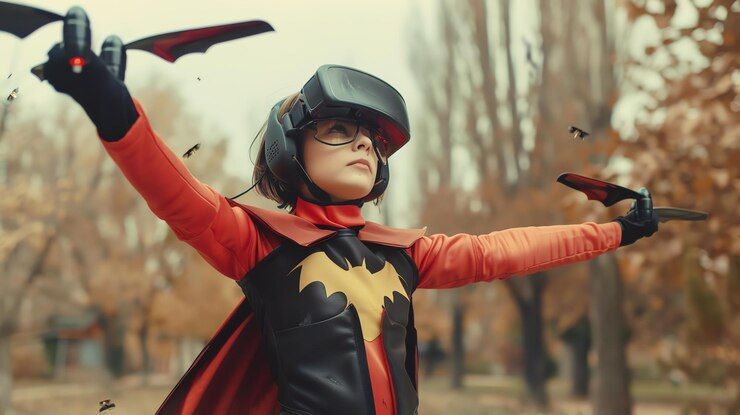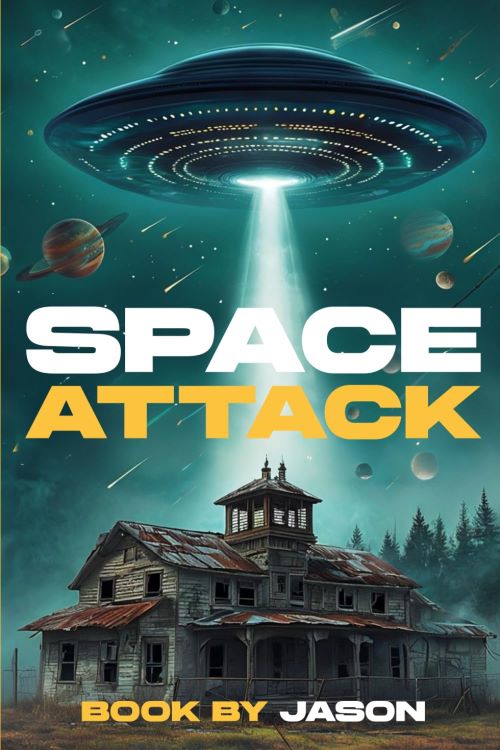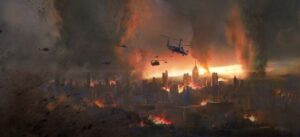
Why Kids Make the Most Powerful Sci-Fi Heroes in Fiction
Ever wondered why sci-fi always hands the “save the universe” gig to kids? When aliens invade or dimensions collapse, who’s cracking the code? Often, it’s not the battle-hardened soldiers or the genius scientists, it’s the 12-year-old doodling spaceships in their notebook.
From Ender’s Game to Stranger Things, kids dominate sci-fi as unlikely but unstoppable heroes. But why? Let’s break down the magic of child protagonists in high-stakes sci-fi and why their stories hit harder than a laser blast.
Kids See Possibility Where Adults See Limitations
Children are wired to dream big. They aren’t burdened by decades of “rules,” skepticism, or societal programming that convinces most adults to play it safe. In sci-fi, this makes kids uniquely suited to tackle the impossible. When faced with a dying planet, an alien invasion, or a broken timeline, they don’t freeze. They ask, “What if we just try this crazy thing instead?”
Their open-mindedness fuels the very foundation of science fiction: exploration, innovation, and hope.
Imagination Is Their Superpower (And It’s Limitless)
Where adults may rely on logic, experience, or past trauma, kids default to raw, unfiltered imagination. That’s their edge. A child’s mind can turn a cardboard box into a spaceship and a flashlight into a weapon of light. In sci-fi, this limitless imagination becomes more than a storytelling tool, it becomes a literal source of survival and success.
The Stakes Are Higher When You See Them Through a Child’s Eyes
Let’s be honest: watching a battle-hardened general save the world can be impressive, but it rarely makes you emotional. Now flip the script, put a 12-year-old in that position. Suddenly, every step they take matters more. Every decision has more weight. Why? Because we feel their vulnerability, even as they rise to face extraordinary challenges.
In fiction, when kids are caught in the chaos of collapsing worlds or intergalactic warfare, the contrast between their innocence and the danger around them creates a deeper emotional resonance. We root for them harder because we want their purity to survive. We want to believe that their belief can change everything.
They Break the Rules Because They Don’t Know Them (And That’s a Good Thing)
One of the most brilliant traits of young sci-fi protagonists is their tendency to ignore the rules not out of rebellion, but because the rules just don’t make sense to them. This instinctive defiance becomes a form of problem-solving.
Adults often work within the system, trying to navigate bureaucracy or outdated strategies. Kids tear down those systems, unintentionally rewriting the path forward with impulsive bravery. That boldness, while chaotic, often exposes weaknesses in flawed systems and it’s exactly what’s needed to catalyze big change in science fiction plots.

Final Thoughts: Believe Like a Kid, Save the Galaxy
Sci-fi doesn’t choose kids as heroes by accident. It chooses them because they represent what adults often forget: unshakable belief, creative problem-solving, and the courage to act with heart. They’re not caught up in politics or self-doubt. They just know something’s wrong, and they want to fix it.
Want to read a story where kids are heroes? In Jason Trang’s sci-fi adventure Space Attack: The Tarot Chronicles, the hero isn’t a soldier or a tech genius, it’s Jason, a regular kid with a huge imagination and no time for excuses. Armed with Tarot cards and instinct, Jason dives into a multiversal battle where the rules don’t apply and his imagination is the key to survival.
Order your copy now and witness a wild ride where belief is the real superpower.



